Former Guatemalan dictator José Efraín Ríos Montt is currently facing charges of genocide for his role as the intellectual author of the 1982 massacre that killed more than 200 people in Las Dos Erres, Petén. While he was convicted in 2013 for genocide against the Ixil people, the sentence was overturned and a lengthy retrial process began. Declared mentally unfit to stand trial, he is now being represented by lawyers in a special closed-door proceeding and may face something similar related to the case of las Dos Erres.
NISGUA, through ACOGUATE, continues to provide international accompaniment to the Guatemalan Association of Families of the Detained-Disappeared (FAMDEGUA), co-plaintiff in the case, and accompanied the trial in 2011 that convicted three former kaibiles and a former military commissioner for crimes against humanity. Others, since, have been convicted or are currently stand trial for the same charges.
The trial against Ríos Montt has been riddled with irregularities, worsened by faulty media coverage on behalf of the Guatemalan mainstream press that just recently, incorrectly stated that formal judicial proceedings against him had ended after he was declared mentally unfit to stand trial. The legal team for the victims and survivors of the Dos Erres massacre released a joint statement clarifying that this is not the case and that Ríos Montt could still stand trial in a special closed-door proceeding. Read the original statement in Spanish or the translated statement below.
For more background on Ríos Montt’s prosecution related to the Dos Erres massacre, read the extensive article by the International Justice Monitor.
The Human Rights Law Office, in representation of the plaintiff FAMDEGUA
In light of the misinterpretation made by some media outlets regarding yesterday’s resolution in the case for the massacre in Dos Erres, in which Efraín Ríos Montt stands accused, we would like to clarify that:
1) Judge Claudette Domínguez REJECTED Ríos Montt’s request to have charges against him dismissed in the attempt to fully remove him from being prosecuted.
2) The tribunal gave the Public Prosecutor’s office until November 30th to present their formal accusation and request that a trial take place using special procedures, which is what occurs when the accused is declared unfit to stand trial.
3) Ríos Montt was declared unfit by the medical reports presented to the courts and was declared by a civil court to be in a state of interdiction, meaning he is incapable of stand trial in a normal setting. However, [through a trial with special procedures], the hope is that the truth will come to light about the crimes he is charged with.
4) The judge ordered that the doctors caring for Ríos Montt submit a report regarding his health every 30 days, starting on November 30th.
5) After the formal accusation is submitted, the court will set a date to hear closing arguments during which it will be discussed whether he will be prosecuted through a special tribunal carried out in accordance with the security measures put in place for his state of health.
6) In this trial, he was represented by his legal guardian and daughter, Zury Ríos.

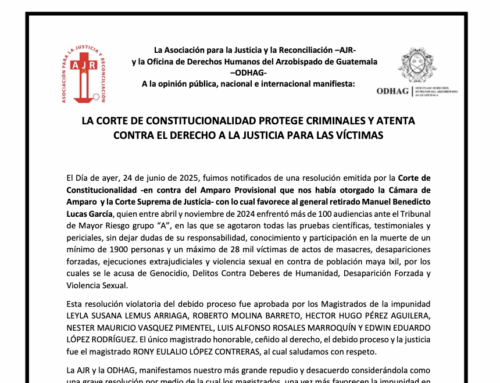
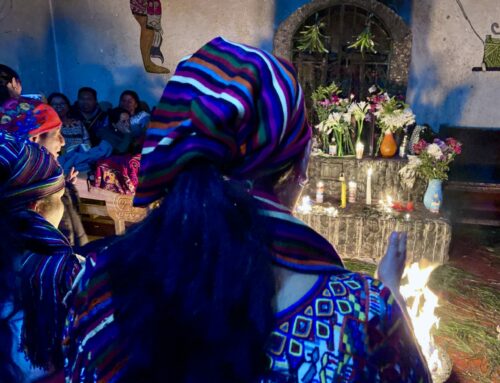
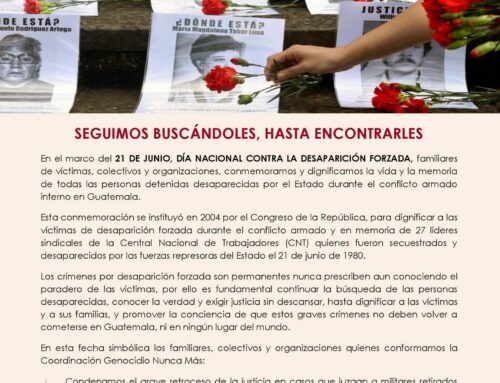
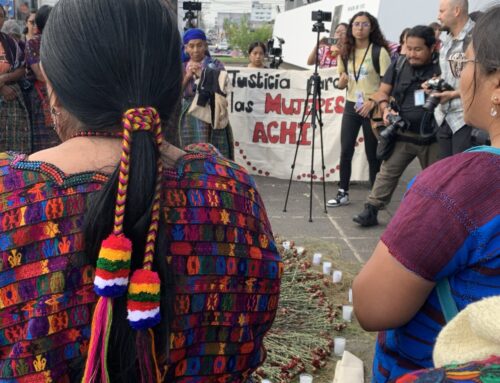
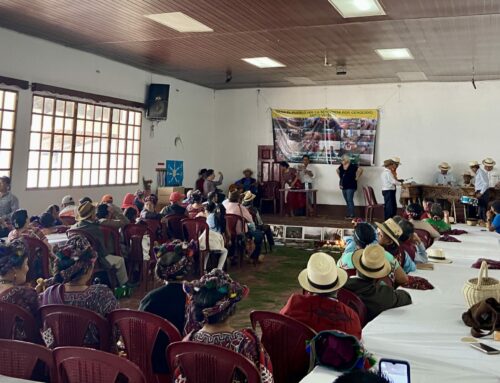
Leave A Comment